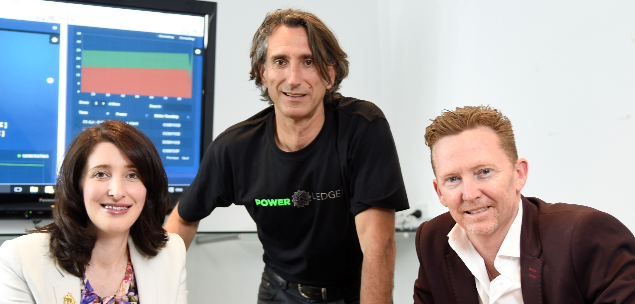Major energy retailer Origin has entered an agreement with Perth-based energy trading startup Power Ledger to explore the ability for consumers to buy and sell energy to and from their neighbours.
The agreement will see Power Ledger’s blockchain-powered peer-to-peer energy trading platform undergo a three-month technical trial, commencing next month. Historical and anonymised Origin customer data will be used to validate the accuracy and security of the platform.
The trial comes in the wake of Power Ledger’s $17m capital raise, earlier this month, via a pre-sale initial coin offering (ICO), which saw it sell out 100 million ‘Power ledger POWR tokens’ in three days.
Managing director David Martin, who co-founded Power Ledger with Dr Jemma Green, spoke to Dynamic Business about what the agreement with Origin could mean for energy consumption and investment in Australia and how businesses can take advantage of peer-to-peer trading.
DB: How did the partnership with Origin come about?
Martin: The agreement came about through a series of conversation between Power Ledger and the senior people at origin, who were interested in understanding the potential impacts of distributed generation on the Origin business as well as the potential value proposition of blockchain powered peer-to-peer trading.
DB: What does the agreement say about the energy sector?
Martin: The agreement shows the sector is changing its view – or looking to modernise its view – in terms of how consumers buy and sell energy. Power Ledger has been saying for the last 18 months – nearly, two years in fact – that the world has changed, with consumers now making investments in the energy system. We need a transactive platform that allows consumers who are making investments in rooftop solar and storage and other distributed energy resources to earn a reasonable return on that investment. Peer to peer trading is a way of convincing customers to stay connected to the grid, use it as a trading platform and make an economic return from participating in the energy system, rather than the alternative, which is to install solar PV and batteries and disappear off on their own. Part of the trial with Origin is understanding what the regulatory and rule changes might need to be to enable peer to peer trading.
DB: Could your platform generate savings for businesses?
Martin: Absolutely. Power Ledger is already operating in a number of apartment buildings as well as a number of commercial precincts. What we’ve been able to do via a transactive platform is provide an incentive for people to both save money and monetise their dormant roof space. In one project we’re working on in Tasmania with Nest Energy, we are supporting the deployment of a megawatt of solar in a commercial precinct on a warehouse roof in circumstances where the warehouse has quite a small energy demand but a lot of roof space. Businesses can monetise their roof space by installing solar in excess of their own demand and selling that excess energy to their neighbours behind that master meter. By creating a transactive platform, we’re not just allowing customers to monetise their existing investments, we’re providing an incentive for other people to make investments in solar and distributed renewables because they can get a really good return by selling energy to neighbours.
DB: How is the recent $17m ICO assisting Power Ledger?
Martin: It’s enabling Power Ledger to really push on with the opportunities in front of us. When we first started Power Ledger, we funded our trials ourselves, we got some early-stage investors on board and we built some excitement around the potential for the trading platform. As we did that, more and more people came to us and asked ‘Could we do this with you, can we work with you here?’ The funds raised through the ICO give us the opportunity to broaden our footprint with the offering – in other words, offer it in more environments and jurisdictions for more types of customers.
See also: Energy startups have to be ‘very smart’ in how they challenge the big retailers: Evergen’s CEO and Peer-to-peer trading: how it could address the rising cost of electricity for small businesses.

